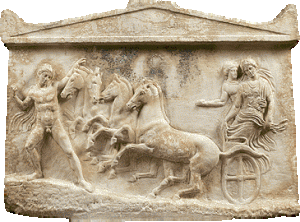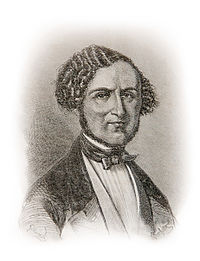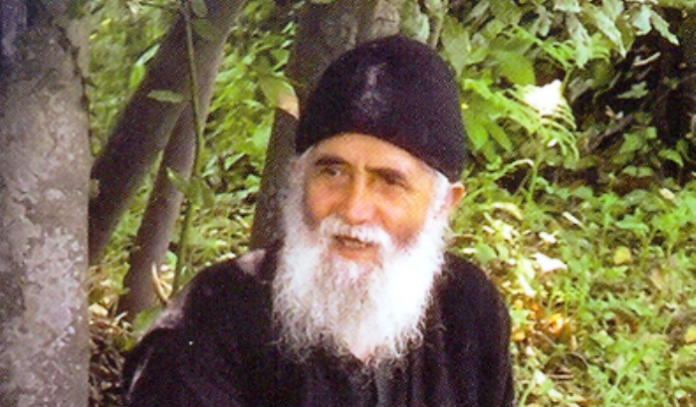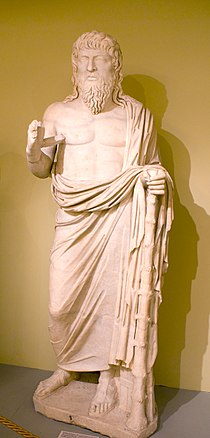
http://anihneftes.blogspot.gr/2011/10/blog-post_24.htm
Οἱ Λαοὶ τοῦ Κόσμου & ὁ Ἑλληνικὸς Λαός.
Mαρμάρινο ἀναθηματικὸ ἀμφίγλυφο ἀνάγλυφο, ἀπὸ τὸ Nέο Φάληρο Ἀττικής, γύρω στὸ 410 π.X. Στὴ μία πλευρά ἀπεικονίζεται ἡ ἀρπαγὴ τῆς Nύμφης Bασίλης ἀπὸ τὸν ἣρωα Ἒχελο. Tὸ τέθριππο ἂρμα, στὸ ὁποῖο ἐπιβαῖνει τὸ ζεῦγος, ὁδηγεῖ ὁ Ἐρμῆς. Στὴν ἂλλη πλευρὰ τοῦ ἀναγλύφου τὸ κέντρο τῆς παράστασης καταλαμβάνει ὁ κερασφόρος Kηφισός. Ἀπεικονίζονται στὸ ἂκρο ἀριστερὰ ἡ Άρτεμις καὶ ἓνας θεὸς καὶ δεξιὰ ἀπὸ τὸν Kηφισὸ τρεῖς Nύμφες.
ΕΘΝΙΚΟ ΑΡΧΑΙΟΛΟΓΙΚΟ ΜΟΥΣΕΙΟ ΑΘΗΝΑΣ
Ὑπάρχουν λαοὶ ποὺ δὲ κατανόησαν ποτὲ τὴν ὑπόστασί τους ὡς ἐθνικότητα. Αὐτοὶ εἶναι κυρίως οἱ νομαδικοὶ λαοὶ καὶ τὰ «παράσιτα» τῆς ἀνθρωπότητος.
Ὑπάρχουν ἂλλοι λαοί, οἱ ὀποῖοι δὲν ἐπιζήτησαν τίποτα, παρ’ ἐκτὸς τὴν ἀσφάλεια τὴ δική τους καὶ τῶν δικαίων τους. Αὐτοὶ αὐτοκηρύσσωνται «οὐδέτεροι» , παράδειγμα οἱ Ελβετοί.
Ὑπάρχουν τρίτοι λαοὶ ποὺ δὲν ἒπαψαν νὰ ἀποβλέπουν σὲ κατακτήσεις πρὸς ἐπαύξησι τῶν ὁρίων τους εἰς βάρος τῶν γειτόνων τους. Αὐτοὶ εἶναι οἱ κατακτητικοί, οἱ πολεμοχαρεῖς λαοί, οἱ στρατοκρατικοί, ὃπως οἱ Τοῦρκοι.
Ὑπάρχουν τέταρτοι λαοί, ἀνάλογοι μὲ τοὺς τρίτους, οἱ ὁποῖοι μὲ τὶς κατακτήσεις τους ἀποβλέπουν σὲ πλουτισμὸ ὑλικό, σὲ ἐνίσχυσι ἀπὸ τὴν ἐπιβολὴ πρὸς τοὺς ἂλλους, σὲ ἀνταγωνισμὸ πρὸς τοὺς ὑπόλοιπους λαούς. Αὐτὲς εἶναι οἱ «ἀποικιακές» Δυνάμεις, οἱ ὁποῖες ἀφαιροῦν ἐκτάσεις καὶ ἀγαθὰ ἀπὸ τὶς ἀσθενεῖς χῶρες ἢ καιροφυλακτοῦν νὰ ἀρπάξουν ἐκτάσεις καὶ ἀγαθὰ ἰσχυρῶν χωρῶν γιὰ νὰ τὶς ἐξασθενήσουν. (Δὲν νομίζω νὰ χρειάζονται παραδείγματα τέτοιων λαῶν…)
Ὑπάρχουν ὃμως καὶ πέμπτοι λαοί, οἱ ὁποῖοι δὲ σκέφτηκαν ποτὲ νὰ ὑποτάξουν ἂλλους, ποὺ δὲν ἀμέλησαν ποτὲ νὰ ἀμυνθοῦν ὑπὲρ ἑαυτῶν καὶ κίνητρο τῆς δράσης τους ἒχουν τὴν εὐγενὴ ἰδέα τοῦ φωτισμοῦ τοῦ κόσμου (μὲ τὴν παροχὴ στοὺς ἂλλους λαοὺς τὰ φῶτα τους), τοῦ ἐκπολιτισμοῦ τῆς οἰκουμένης (μὲ τὸν ἲδιον τους τὸν πολιτισμό), τοῦ ἐξευγενισμοῦ τῆς ἀνθρωπότητος (μὲ τὴν ἲδια τους τὴν εὐγένεια).
Μοναδικὸ τέτοιο παράδειγμα εἶναι ἡ Ἑλληνική φυλή. Ἡ ἒνωσις τῶν ἀμφικτυόνων τὸ ἀποδεικνύει, ἡ ἂμυνα κατὰ τῶν Περσῶν τὸ καταμαρτυρεῖ, ἡ ἐκπολιτιστικὴ ἐκστρατεία τοῦ Μ. Ἀλεξάνδρου τὸ βροντοφωνεῖ.
Ἀλλὰ οἱ τελευταῖοι αὐτοὶ λαοὶ εἶναι οἱ πλέον δυστυχεῖς. Καὶ εἶναι δυστυχεῖς οἱ λαοὶ τοῦ Φωτός, γιατὶ ἒχουν ἐχθροὺς ὃλους τοὺς ἂλλους λαούς, ποὺ δὲν κατάφεραν νὰ ἀνέλθουν στὴν ὑψηλὴ βαθμίδα τῆς ἐθνικῆς ἀρετῆς ποὺ αὐτοὶ κατέχουν, καὶ ἐπίσης ἒχουν ἐχθροὺς αὐτοὺς ποὺ δὲν ἀνέχονται τὴν ὑπεροχὴ τῆς ἠθικῆς καὶ τοῦ πνεύματος.
Ἐπίσης εἶναι δυστυχεῖς γιατὶ στὴν ἀέναη πάλη τους γιὰ τὴν συντήρισιν τὴ δική τους καὶ τὸν φωτισμὸν τῶν ἂλλων, ἒχουν περιόδους ἐξάντλησης.
Πέφτουν σὲ νάρκη τότε, φαίνονται ἀνίκανοι ν’ἀφυπνιστοῦν, καὶ οἱ ἐχθροί τους χαίρονται, μὲ φθόνο.
Ἀλλὰ ἒχουν καὶ τὸ προνόμιο οἱ λαοὶ τοῦ Φωτὸς νὰ μὴν πεθαίνουν ποτέ. Κάτω ἀπὸ καταπιέσεις, ἐξευτελισμούς, ἐξάντλησι, καὶ ἐνῶ ὃλοι τοὺς θεωροῦν νεκρούς (ἀκόμη καί αὐτοἰ οἱ ἲδιοι), ἒξαφνα ἀνασταίνονται γίγαντες ὃπως καὶ πρίν, ἀπτόητοι ὃπως πάντοτε, ἀναλλοίωτοι ὃπως οἱ αἰῶνες, ἀπρόσιτοι ὃπως ἡ ζωογόνα τους ἰδέα. Καὶ μεγαλουργοῦν πάντοτε καὶ ἐπιβάλλονται καὶ ἀναζοῦν ὃπως ἡ φλόγα ποὺ τῆς ρίχνεις νέο λάδι.
Αὐτὴ εἶναι ἡ ψυχολογία τῶν αἰφνιδίων, τῶν ἀπροσδόκητων ἐξεγέρσεων τῶν «Λαῶν τοῦ Φωτός», ἐξεγέρσεις στὶς ὁποῖες κανεὶς δὲ πιστεύει προτοῦ γίνουν, καὶ τρίβουν οἱ πάντες τοὺς ὁφθαλμοὺς ὃταν συντελεσθοῦν.
Αὐτὴν τὴν περίοδο διανύουμε, τὴν περίοδο μιᾶς ἀπροσδόκητης ἐξέγερσης, ποὺ θὰ ἀποτινάξῃ τὸ σκότος ποὺ ἐπέβαλλαν στὴν Ἑλληνικὴ Ψυχὴ οἱ ἐγχώριοι πατριδοκάπηλοι καὶ οἱ ξενόφερτοι οὐραγοὶ τῆς παγκοσμιοποίησης…
Βιβλιογραφία
Ἰστορία τοῦ Βαλκανοτουρκικού Πολέμου, τόμ. 1, τοῦ Ἡλ. Οἰκονομόπουλου, ἒκδ. 1912
The Peoples of the World & the Greek People.
Marble votive amphiglyphic relief, from Neo Faliro of Attica, around 410 BC. On one side is depicted the abduction of the Virgin Basil by the hero Helos. The four-wheeled chariot, in which the couple rides, is driven by Hermes. On the other side of the relief, the center of the show is occupied by the horned Kifissos. On the far left, Artemis and a god are depicted, and to the right of Cephis, three Nymphs.
NATIONAL ARCHAEOLOGICAL MUSEUM OF ATHENS
There are peoples who never understood their existence as a nationality. These are mainly the nomadic peoples and the "parasites" of humanity.
There are other peoples, who did not seek anything, except their own security and that of their righteous ones. They are self-proclaimed "neutral", for example the Swiss.
There are third peoples who have not stopped aiming at conquests to increase their borders at the expense of their neighbors. These are the conquerors, the warlike peoples, the militarists, like the Turks.
There are fourth peoples, analogous to the third ones, who with their conquests aim at material enrichment, at strengthening from encroachment on others, at competition with the rest of the peoples. These are the "colonial" Powers, which take away land and goods from sick countries or seek to seize land and goods from strong countries in order to weaken them. (I don't think examples of such peoples are needed...)
However, there are also fifth peoples, who never thought of subjugating others, who never neglected to defend themselves, and their motivation for action is the noble idea of enlightening the world (by providing other peoples with their lights), of civilization of the world (with their culture), of the refinement of humanity (with their kindness).
The only such example is the Greek race. The meeting of the Amphictyons proves it, the defense against the Persians testifies to it, the cultural campaign of M. Alexander shouts it out.
But these latter peoples are the most unhappy. And the peoples of the Light are unhappy, because they are enemies of all other peoples, who did not manage to rise to the high level of national virtue that they possess, and also they are enemies of those who do not tolerate the excellence of ethics and spirit.
They are also unhappy because in their constant struggle for their own support and the enlightenment of others, they have periods of exhaustion.
They fall into a mine then, they seem unable to wake up, and their enemies rejoice, with envy.
But the people of Light also have the privilege of never dying. Under oppression, humiliation, exhaustion, and while everyone considers them dead (even the gods themselves), they suddenly rise up giants as before, undaunted as always, unchanged as the ages, inaccessible as their life-giving idea. And they always flourish and are imposed and live like the flame that you pour new oil on.
This is the psychology of the sudden, unexpected uprisings of the "People of Light", uprisings in which no one believes before they happen, and everyone rubs their eyes when they happen.
We are going through this period, the period of an unexpected uprising, which will shake off the darkness that was imposed on the Greek Soul by the domestic patriots and the aliens of globalization...
Bibliography
History of the Balkan-Turkish War, vol. 1, of Hel. Okonomopoulos, ἒkd. 1912








